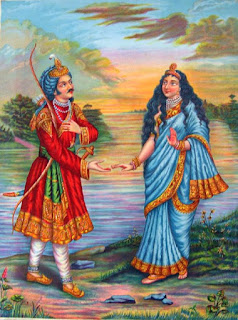Golden egg
Out in the countryside of Kentucky lived a family of four. Donnie was the father of the family who worked his tail off at a neighboring farm. His wife, Diana, was a stay at home mom. She also was responsible for homeschooling the couple's two daughters: Nicole and Christine. During one winter, Donnie began to grow dangerously ill. It wasn't before long that he ultimately met his fate. Diana was absolutely shaken as she had no clue how to live life without her husband. A few days after his death, the owner of the farm that Donnie worked at came to visit the widow and her children.
"How are you holding up, Diana?" the farm owner said.
"Not too well. We have no way of making money at the moment and I'm afraid the girls and I will starve," Diana replied.
"Well, I'll tell you what. Donnie was the hardest worker I have ever had the pleasure of having at my farm. It wouldn't be right if I didn't do something to help his family."
The farm owner reached into his bag and pulled out a golden egg. It was the normal size of a chicken egg, but it held its weight in gold. He handed the egg to Diana. Her hand dropped for a second as she did not expect the egg to be that heavy. It was solid gold.
"What is this?" Diana asked.
"Well, to tell you the truth, I'm not sure. I know it's gold. It's the weirdest thing. About a month ago, one of my chickens produced that rather than a traditional egg. I wasn't sure what it was so I brought it into town. They assessed it as gold and I was paid in great value. It's been producing more and more ever since. I suggest you do the same, and bring it into town to sell."
"Oh...oh my. I don't know how to ever thank you."
"No need to, I would do anything for Donnie. I'll tell you what. Every week, I will bring you one of these eggs until you are able to get back on your feet."
So this arrangement worked well for several months. The farm owner would come to Diana's house and deliver her an egg from his bag. Diana would then go into town and exchange the egg for money. It was with this that she was able to provide for herself and her daughters.
One day, the farmer came to Diana's house just like any normal weekly visit. When he stepped into the home, he pulled out his bag and handed Diana an egg.
"Let me ask you something," Diana said.
"Yes?" the farm owner responded.
"How many eggs do you have in that bag? Why don't you just give me a few so I am even more well off than I already am?"
"I do not carry any more eggs with me than the single one I bring to you once week."
"You lie!"
Diana grabbed the bag and shook everything out. A few common essentials fell out including a driver's license, cash, and a lighter. Diana looked down at the pile in shock. The man looked at her with a sense of absolute disgust.
"You have shown me something today that I did not think existed in you. You have doubted my good intentions. I do not think I can continue to honor our agreement." the farm owner said as he walked out the door.
Diana stood there with her mouth still wide open. She could not believe what she had just done. Now, she and her daughters were defenseless against the world. They still had some money for now, but that was eventually going to run out. What then? Nothing but hopelessness.
---
Author's note: I modeled this story completely after the story with the title: The Mallard that Asked for Too Much. In this story, a husband dies and he is resurrected as a mallard with golden feathers. He flies to the home of his wife and children and claims to be their husband/father. He told them to take one feather from him each day. One day, the wife grew greedy and plucked every feather from the mallard. The golden feathers then became those of a normal mallard. In my story, I believe it is extremely similar to that of the tale with some details changed. I wanted to keep the lesson the same but changing how the gold is given to the wife. The story I wrote is modernized by the fact that they live in the state of Kentucky. I really enjoyed writing this story simply because I think the reality of the plot is extremely true in nature. A chicken that produces a golden egg is obviously fictional, but the fact that someone would take advantage of someone else's generosity definitely is not. People tend to grow greedy when they are continuously rewarded with objects of material wealth. It's human nature to want more of this new-found wealth.
---
Bibliography: Shedlock's Eastern Stories and Legends






















